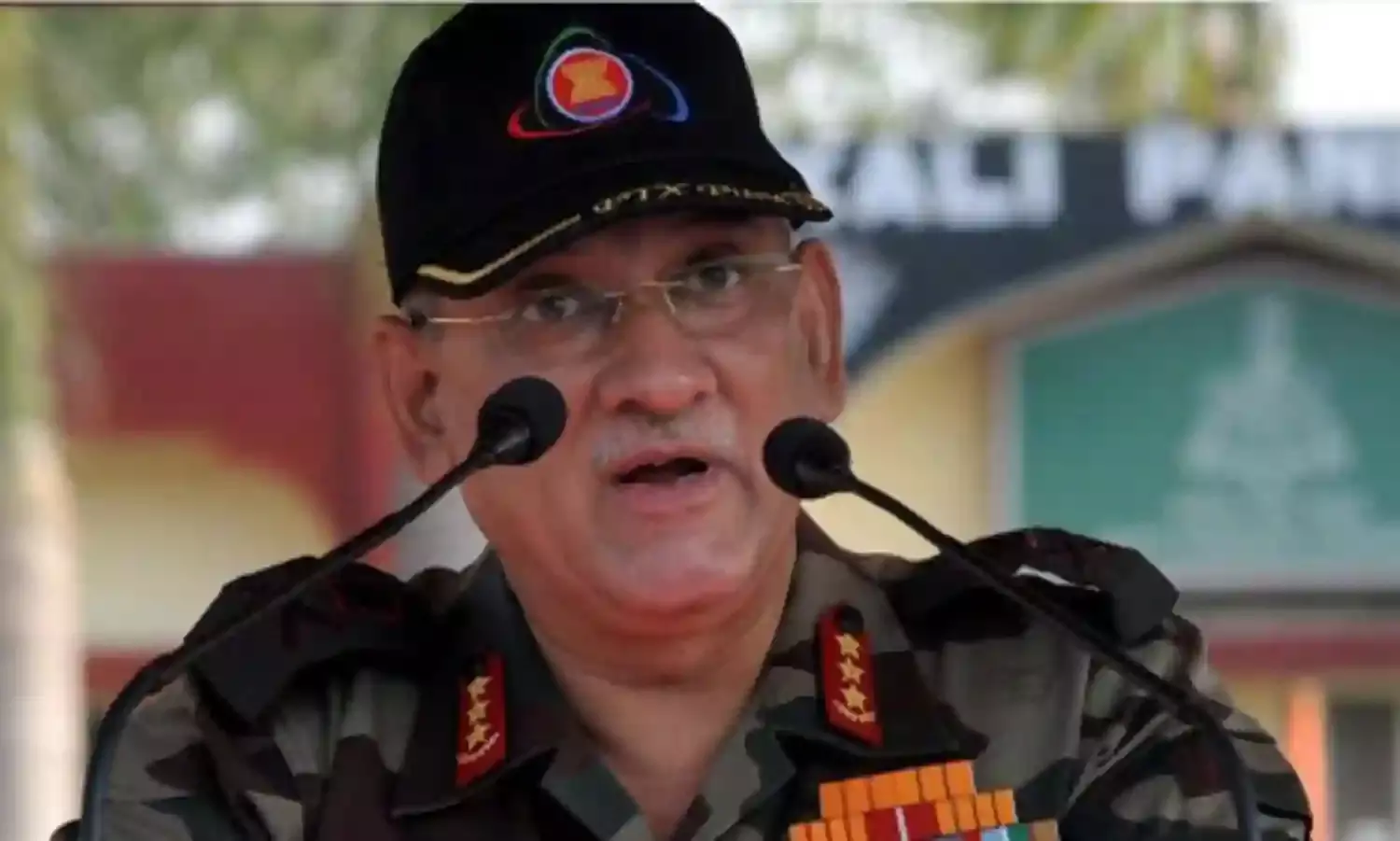The Chief Has Spoken, But Is the Chief Listening?
The Army Chief needs to heed his own words

NEW DELHI: At an unspecified event at the United Services Institution of India (USI) - the haunt in New Delhi of retired generals fading away - the Army Chief, as reported in the media intoned, "The military should be somehow kept out of politics.
Of late, we have been seeing comments and articles on the politicisation of the military. Though not elaborated in the media report, the observation was likely triggered by a query on the building of three foot over-bridges by the Army in Mumbai at the location of the recent stampede at Elphinstone station that left 22 dead and 35 injured. Inspired by its earlier showing in New Delhi in the run up to the Commonwealth Games, when an under construction footbridge near the Jawaharlal Nehru Stadium collapsed, the Army had taken up the gauntlet to assist Mumbai commuters when put to it by the Defence Minister in a visit to the site along with the Maharashtra chief minister and the Railway Minister.
At the time, it was unclear whether the Army has been consulted prior for this assistance by the Defence Minister. In the event, it elicited considerable social media outpourings by veterans miffed at the call by the civil authorities on the Army when there are sufficient resources with the civil administration – in this case the railways – to fight their own fires. Analogy was drawn to the period early in the Modi era when the Army was tasked by the previous Defence Minister to put a pontoon bridge across the Yamuna to facilitate the Sri Sri Ravishankar’s yoga jamboree on the Yamuna riverbed.
Following Nirmala Sitharaman’s announcement at Elphinstone bridge, in the company of party stalwarts, the Army Chief dutifully took on the task, justifying it later as a public relations exercise useful for image building of the Army.
This is the second instance of Sitharaman’s proactivism in tapping the Army in her short stay so far at the helm of the Defence ministry. Early in her tenure, she had required the Army to clean up the mess tourists leave behind in the mountains and high altitudes where they are deployed. In particular, this is in the pilgrimage belt along the upper reaches where the Ganges originates. The Army clicked its heels and fell in line, with social media awash with photos of colonels taking to the broom – along with Army wives. One such much-forwarded image was from Gulmarg, where presumably the army is deployed in tackling terrorists infiltrating into the Valley besides protecting the Line of Control (LC).
This background suggests two possibilities behind the Army Chief’s cryptic remarks at the USI event (he reportedly did not elaborate). The first is that he was telling off his critics to lay off the Army by being more available than necessary to step up and fill the breach. In light of the advance of cultural nationalism and constriction of the liberal-secular space across the land, the Army could not possibly escape the attention of the emerging ‘deep state’ in India. Critics have therefore been calling for greater self-regulation by the Army in the civil-military domain, lest cultural nationalism contaminate its secularity and compromise it.
That this is the more likely possibility is visible from the Chief going on to say, “I think we operate in a very secular environment. We have a very vibrant democracy where the military should stay far away from the polity." He is sanguine that society remains unchanged. Nevertheless, traditionally, the Army needs to stay at a distance from the hurly burly world of democratic politics. At the event, he explained the Army’s stepping up at Elphinstone as part of its aid-to-civil-authorities mandate, though leaving unclear as to how normal rush hour pedestrian commuting can be equated with natural disasters, for which the Army can be tapped.
This ab-initio rules out the second possibility, that of the General tacitly cautioning his civilian political masters to keep a distance from the Army. This is unlikely in view of his past rhetoric and actions.
PM Modi has most recently used the strained relations with Pakistan over the past two years to portray the Congress as a party in league with Muslims and Pakistanis to meddle in the Gujarat elections. The institutional leadership needs to be wary of the use of the national security card for political interests, in this case continuing friction with Pakistan enabling the political polarization within India for political gains by the ruling party.
The ruling dispensation has chosen its Army chief well, one who would plough a narrow professional furrow. The problem is that at the apex level of the military sensitivity to the political context of professional activity, including its internal political dimension, cannot be elided by clichés such as apolitical military. The military apex needs to be sufficiently clued up politically to detect that in the context of the times it needs to be porcupine like to ward of unwanted political attention. The Chief needs to heed his own words.
(Ali Ahmed writes specifically on the Indian military)



